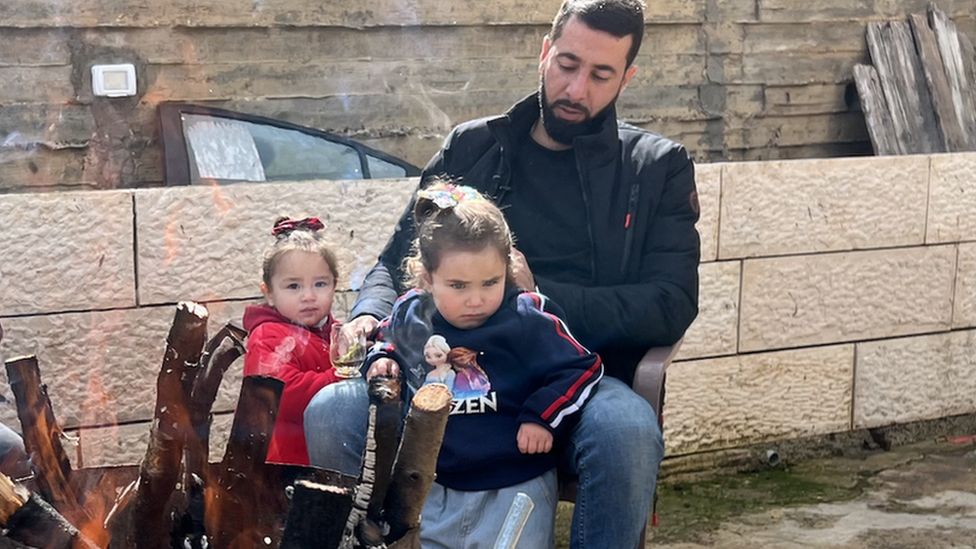-

-
-
Loading

Loading

Kamal Karaja used to have a decent income of $3,500 a month working on construction sites in Israel, which provided a good living for a Palestinian in the occupied West Bank. However, his permit was cancelled after the Hamas attack on Israel and the subsequent Israeli air strikes and ground invasion of the Gaza Strip due to "security concerns" cited by Israel. Kamal, like many other workers, has been affected by this, and his financial situation has worsened to the point where he had to sell his car. The Palestinian Authority estimates that around 200,000 workers have been impacted, primarily in the West Bank. The economic consequences have been severe, with Kamal's town experiencing many men staying at home, and the overall economy coming to a standstill. Kamal managed to find some temporary work on a construction site in the West Bank, but due to the deteriorating financial situation, he was laid off by his employer. As a result, he has resorted to cutting down trees and selling firewood to locals, which only provides him with 2% of his previous salary. He did not receive any compensation after his permit was cancelled, and like other Palestinian workers, he was employed without a contract. Before the conflict, Palestinian workers in Israel and Israeli settlements in the West Bank accounted for nearly one in five Palestinian workers, contributing $3.2 billion annually to the Palestinian economy, mostly in the construction sector. While some Israeli business groups advocated for the return of Palestinian workers, the government has introduced a plan to replace them by admitting more than 60,000 workers from countries such as India, China, Moldova, Sri Lanka, and Thailand this year. Shaher Saad, the head of the Palestinian General Federation of Trade Unions, criticized Israel's decision, stating that there were 105,000 Palestinians working in construction in Israel who are now unemployed. He also highlighted that Israeli employers avoid paying compensation to workers, with no law in Israel to enforce such payments. Mr. Saad emphasized the difficulty of replacing Palestinian workers' expertise in various sectors, including construction, agriculture, tourism, and services. Another Palestinian worker, Bassam Karaja, has also fallen into poverty after his work permit was canceled. He can no longer afford to pay his bills, resulting in the disconnection of his electricity and water services. Bassam used to earn $4,000 per month while working in Israel and considers the past four months, aggravated by the Covid pandemic, as the worst. He blames the Palestinian Authority for neglecting workers and failing to provide financial aid or prevent utility companies from disconnecting services. Since the conflict began, the unemployment rate in the Palestinian territories has risen from 23% to 47%, and the Palestinian economy has contracted by 35%, according to Labour Minister Nasri Abu Jeish. The Palestinian Authority has sought help from donor countries and the International Labour Organisation, but has not received a response yet. Before the war, the Palestinian Authority was already facing financial difficulties, exacerbated by Israel's decision to withhold tax revenues collected on its behalf. This resulted in reduced salaries for civil servants and a growing crisis in the PA's ability to provide public services. With no solution in sight, Kamal and others like him are struggling to meet basic needs for their families. The situation is dire, and without assistance, many Palestinians are facing a grim future.